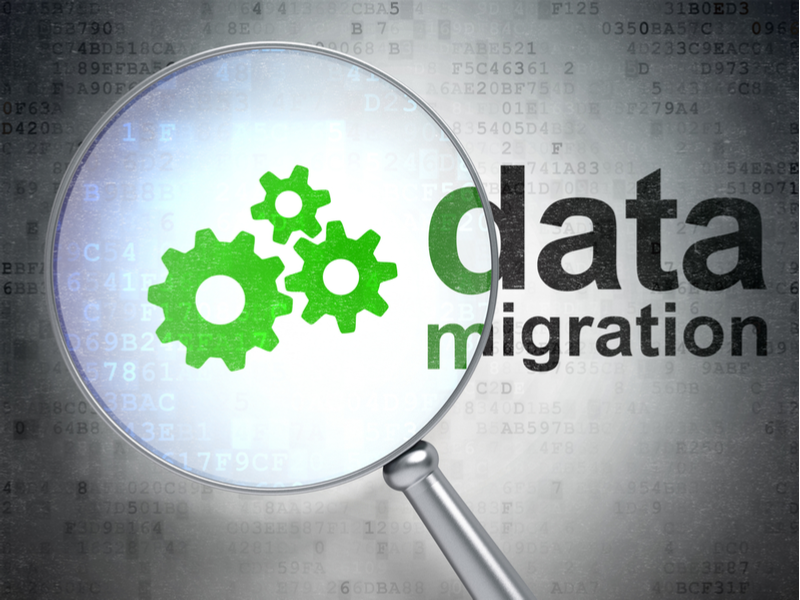
In order to thrive in the competitive world, organizations have to constantly keep themselves updated with the latest technology in the market. They have to consolidate their data resources and replace their legacy systems. In information technology, migration refers to the process of packaging and deploying data to a new system permanently. Migration usually results from the introduction of a new system or as a part of upgrading the storage and systems.
Often overlooked, data migration is not simply copying data from one system to another. The data may run perfectly on the source system but can be inadequate for the target environment. Insufficient knowledge of the migration process can introduce risks such as data loss and business downtime. Therefore, experts carefully analyze the source and the destination system before deploying the data and applications.
The need to manage the data migration process more efficiently has become a part of a corporate data quality strategy. Typically, your organization will require data migration under the following scenarios:
When servers are getting overloaded:
On-premise server has a limited memory, a limited processing capability, and limited portability. As you devise new ways to expand your business, you will need additional resources. With your new business strategies, you will have a significant increase in the usage of data. A server may run out of resources and at worst, crash if there is a surge in user requests. Most of the servers crash simply because they fail to balance their load.
Therefore, you should upgrade and replace your server components from time to time. This process involves careful planning of the migration and deployment beforehand. You should consider migrating your data and applications to the latest server technology if it fits your budget.
You want to reduce your maintenance overheads:
On-Premise servers and networking equipment require constant monitoring and upgrading. You will find your to-do list filled with maintenance activities during peak season. This will prove detrimental to your core business operations as you won’t be able to concentrate on them.
It is one of the principles of migration to reduce human resources as much as possible for routine maintenance tasks. A successful migration of your data and applications to cloud hosting can significantly reduce your maintenance overheads. Cloud provides automation for your tedious tasks. It will monitor your incoming and outgoing traffic and notify you in case an anomaly is detected.
You are recovering from a disaster:
In networking, there is no such term as a perfectly secured network. As your business reputation grows, attackers find new ways to breach your data security. They will misuse your sensitive data and lock your systems for a ransom. Therefore, it is very common that any vulnerability in your security will lead to a data disaster. If this has happened in your organization, then you must recover your data from a backup as soon as possible. Often, you will have to migrate your sensitive data and essential applications to a backup server to resume your services. After deploying data to a backup server, you can correct the errors and migrate the data back to your primary servers.
You want to utilize the latest technology for your business advantage:
Companies are competing hard to stay in the market. In this scenario, it is reasonable to utilize every possible technology that can increase your productivity. This includes migrating to a cloud environment. Cloud offers more flexibility and easy scalability of resources. In order to host your application on the cloud, you need to migrate it over the cloud service provider platform. Generally, there is a big difference in the architecture of a cloud and on-premise server. Your migration plan should account for post migration changes to successfully run it on the cloud.
You are relocating or expanding your business:
Relocation and business expansion are not easy processes. There are many factors that can play a critical role in its success and failure. You will have to move your applications and data to a server present on another location. It may seem like an easy task but there are lots of risks involved. Data loss is one of them. If your applications are the heart of your business, then you should leave the migration process to the experts. By outsourcing the migration to a trusted third-party service, you should mitigate any risk associated with the data failure. They have an expert team that can put your applications back to work again in the shortest possible time.
Adding new technology will open opportunities for your organization. But you need to minimize the business impact of data migration efficiently. Business downtime, data loss, and increased costs can introduce significant gaps in your success ladder. A robust methodology for all the migration activities is crucial. It doesn’t matter why you should opt for data migration in your organization. The ultimate goal of this activity is to improve business performance and deliver competitive advantage.
Contact us today to learn about Bleuwire™ services and solutions in how we can help your business.





